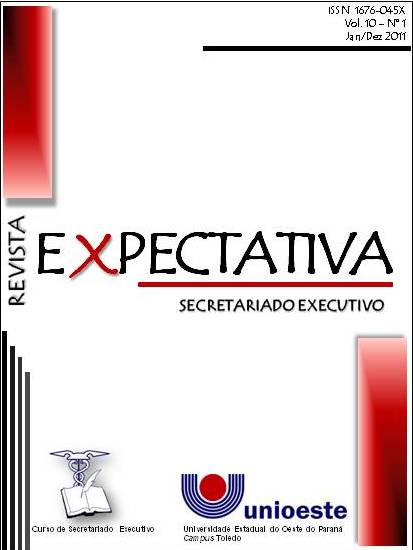BACKGROUND, CONSEQUENCES AND SCIENTIFIC CHALLENGES OF THE EXECUTIVE SECRETARIAT AREA
DOI:
https://doi.org/10.48075/revex.v10i1.6091Abstract
This study aimed to address inherent reflections on the construction of scientificity of the Executive Secretariat area. More specifically, the discussion revolves around issues relating to the Secretariat not be inserted as an area of knowledge, in order to form hypotheses for the antecedents, consequences and some research challenges. The fact that the course not be included as an area of knowledge in Brazil leads to a series of academic difficulties, relating to the purposes of teaching, research and practical application of knowledge. The methodology of this study is characterized as exploratory and descriptive in the context of qualitative research, adopting techniques such literature research and secondary data. As main results, four hypotheses were made that in view of the author, include the antecedents and consequences: the first related to the lack of scientific research conducted by graduate students, and the second relates to the small number of professionals graduated in Secretariat Executive, with master and/or doctorate degree, the third hypothesis is defined as antecedent related to the lack of scientific research produced by professional masters and doctors in the specific area, and the fourth is considered the lack of vehicles for scientific research in the area.Downloads
Published
01-01-2000
How to Cite
MAÇANEIRO, M. B. BACKGROUND, CONSEQUENCES AND SCIENTIFIC CHALLENGES OF THE EXECUTIVE SECRETARIAT AREA. Revista Expectativa, [S. l.], v. 10, n. 1, p. 9–26, 2000. DOI: 10.48075/revex.v10i1.6091. Disponível em: https://e-revista.unioeste.br/index.php/expectativa/article/view/6091. Acesso em: 5 dec. 2025.
Issue
Section
Seção - Secretarial
License
Aviso de Direito Autoral Creative Commons
Política para Periódicos de Acesso Livre
Autores que publicam nesta revista concordam com os seguintes termos:
1. Autores mantém os direitos autorais e concedem à revista o direito de primeira publicação, com o trabalho simultaneamente licenciado sob a Licença Creative Commons Attribution que permite o compartilhamento do trabalho com reconhecimento da autoria e publicação inicial nesta revista.2. Autores têm autorização para assumir contratos adicionais separadamente, para distribuição não-exclusiva da versão do trabalho publicada nesta revista (ex.: publicar em repositório institucional ou como capítulo de livro), com reconhecimento de autoria e publicação inicial nesta revista.
3. Autores têm permissão e são estimulados a publicar e distribuir seu trabalho online (ex.: em repositórios institucionais ou na sua página pessoal) a qualquer ponto antes ou durante o processo editorial, já que isso pode gerar alterações produtivas, bem como aumentar o impacto e a citação do trabalho publicado (Veja O Efeito do Acesso Livre).
Licença Creative Commons
Esta obra está licenciada com uma Licença Creative Commons Atribuição-NãoComercial-CompartilhaIgual 4.0 Internacional, o que permite compartilhar, copiar, distribuir, exibir, reproduzir, a totalidade ou partes desde que não tenha objetivo comercial e sejam citados os autores e a fonte.


